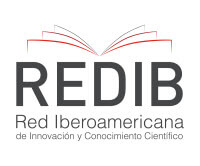Editorial Ethics
REvista CINTEX considers the following ethical principles throgh its editorial process:
- The freedom of expression of authors, attention to diversity and minorities.
- The freedom of decision of the evaluators and the editor. Editorial decisions will always be communicated to the authors in a positive way, whatever their position.
- The commitment to ensure accessibility to users with text browsers and with help devices.
- The editor's responsibility in preserving the anonymity of authors and reviewers during the review process.
- The commitment of confidentiality with data and texts by evaluators and editors. The author's commitment to internationally accepted guidelines when the research involves people or animals.
- The recognition of conflicts of interest, if they exist.
- Data manipulation practices are discouraged.
- The auditable record of all interactions.
- In the cases of authorship dispute, the process of review or publication of the text will be suspended until it is resolved.
- The assignment of rights is done under the Creative Commons License (CC BY-NC).
The moral and ethical responsibility of the authors implies:
- Consistency and reliability in the investigation: research must be responsible and legal, carefully worked with correct analysis methods, results must be guaranteed and presented properly.
- Honesty: no lies or fakes or data manipulation.
- Original: not published in another country or language, not simultaneously submitted to more than one publication without the publishers having agreed to the co-publication indicating it in the text, subject to intellectual property laws citing identifiable primary sources.
- Transparent with sources of research funding, including direct and indirect financial support, the provision of equipment or materials or other support.
- Responsibility: the authors must adjust the text to the established publication norms. They should collaborate in making quick and agile corrections. They must respond to the acceptance or rejection and to the suggestions of the reviewers.
- Indications on co-authorship. The degree of participation in the study will depend on the simultaneous presence of these conditions: the intervention in all the phases (structure, writing, and revision), the coordination with the rest of the authors, the contribution to the obtaining of funds, the compilation and the analysis of data. The order of signature will be decided in a consensual and prior manner. The author is the one who assumes public responsibility for the content of the article. Researchers with minor contributions would only appear in the acknowledgments.
- The quality of the texts is based on the process of review by anonymous peers, they can express their opinions, contributing to the recognition of the scientific contributions of the documents to be published.










